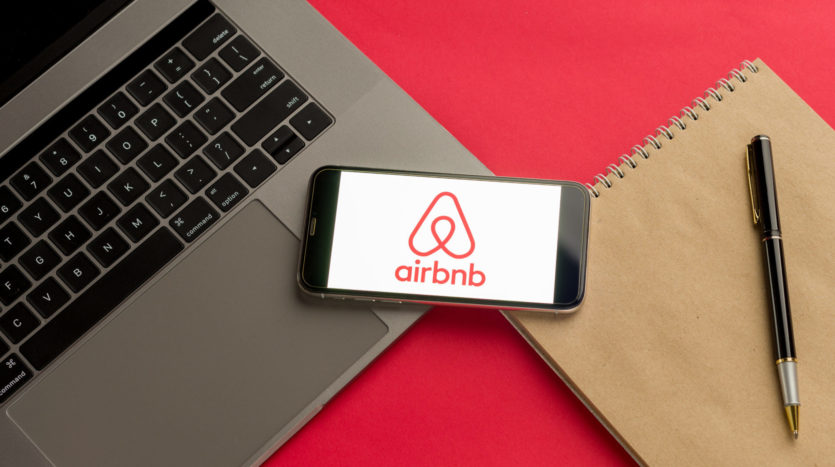Renting your accommodation in airbnb: namely!
As a supplement to income or a real livelihood, renting a furnished flat in airbnb can prove to be a winning financial bet: during the summer of 2019, no less than 8.5 million French people have booked via this platform. But before taking the plunge, a certain amount of information needs to be known and checked in order to proceed in the right way!
The basics of the practice, framed by the law
Anyone can rent their accommodation to a visiting clientele for a short period of time. No authorisation is required and no declaration has to be made. However, several factors restrict this apparent freedom.
The legislative framework
For ten years or so, the occasional rental of private accommodation (via airbnb in particular) has not been subject to any particular constraints. With the explosion of this practice, the legislator intervened to protect both landlords and tenants.
Article 145 of the ELAN law n°2018-1021 of 23 November 2018 set the legal framework. Thus, furnished accommodation known as “tourist accommodation” is defined as “furnished villas, flats or studios, for the exclusive use of the tenant, offered for rent to a clientele passing through who do not choose to live there and who are staying there for a stay characterised by daily, weekly or monthly rentals”.
Rules to be respected
To rent out one’s principal residence, the number of days of rental allowed is set at 120 per year, with occupation by each tenant not exceeding 90 days. In municipalities with more than 200,000 inhabitants, it will also be necessary to apply for registration.
The Alur Law n° 2014-366 of 2014 complicates matters with the distinction between primary and secondary residence. The main residence, to be considered as such, must be occupied for 8 months of the year. The secondary residence can therefore only be occupied for 4 months of the year, i.e. 120 days.
If the dwelling is rented in a secondary residence, in addition to the initial restriction of 120 days, there is an obligation to declare it to the town hall. In a municipality of less than 200,000 inhabitants, a change of use of the premises will also have to be made.
Finally, the initial principle of being able to rent without prior declaration only applies in practice to the rental of a principal residence in a town of less than 200,000 inhabitants.
Things to think about before placing your rental advertisement
Once you have declared your intention to rent, you can proceed to the next step: publish an ad on the airbnb website and receive your first reservation. But have you thought of everything?
Your property is located in a co-ownership
The co-ownership regulations set a general purpose for the building, which must not contradict your offer to rent. In particular, they may include a bourgeois housing clause restricting occupation to residential and professional use, or even an exclusive bourgeois housing clause authorising only residential use. In this case, you can always request a change of use at a general meeting.
You are a tenant of the property
If you wish to sublet a property that you are renting, always within the limit of 120 days per year, you must obtain written permission from the landlord. Failing this, the landlord may take legal action to recover the income from the rental and claim damages from you.
In addition, your rate must not exceed the pro rata of the rent you pay to your landlord.
Check the special conditions in your commune
In addition to the thresholds defined above, the law allows any municipality, regardless of its size, to institute an obligation to make a declaration to the town hall if it so wishes. A registration number must then be obtained before any rental. This is the case in Paris, Bordeaux, Biarritz or Nice for example.
Be an exemplary lessor to ensure your long-term success.
There are countless disputes related to rentals via airbnb, so it is commendable to preserve you from them thanks to a few precautions of use.
Present your accommodation correctly
There is no point in passing off your urban flat as a chalet in the mountains, as disillusionment will quickly appear in the notices left on your offer, and you will be shunned by potential tenants.
Take good photos, indicate the facilities present and be precise (and honest) about the location of the property.
Do not hesitate to refuse a “shady” tenant.
The site has set up a “host guarantee” which can compensate you up to €800,000 in the event of damage to your accommodation. However, if the contact is not reassuring or if you doubt the purpose of the rental, you are fully entitled to refuse the stay.
Get paid via the platform
Although airbnb takes a commission of 3% (plus VAT), payment is secure and funds are paid the day after arrival. This is a way of protecting everyone from false announcements on the one hand and unpaid bills on the other.
Renting via the airbnb platform remains simple enough as long as these few rules are respected and your accommodation is insured accordingly. The additional income is appreciable, but don’t forget to include it in your tax return. All you have to do is write the most attractive advertisement!


